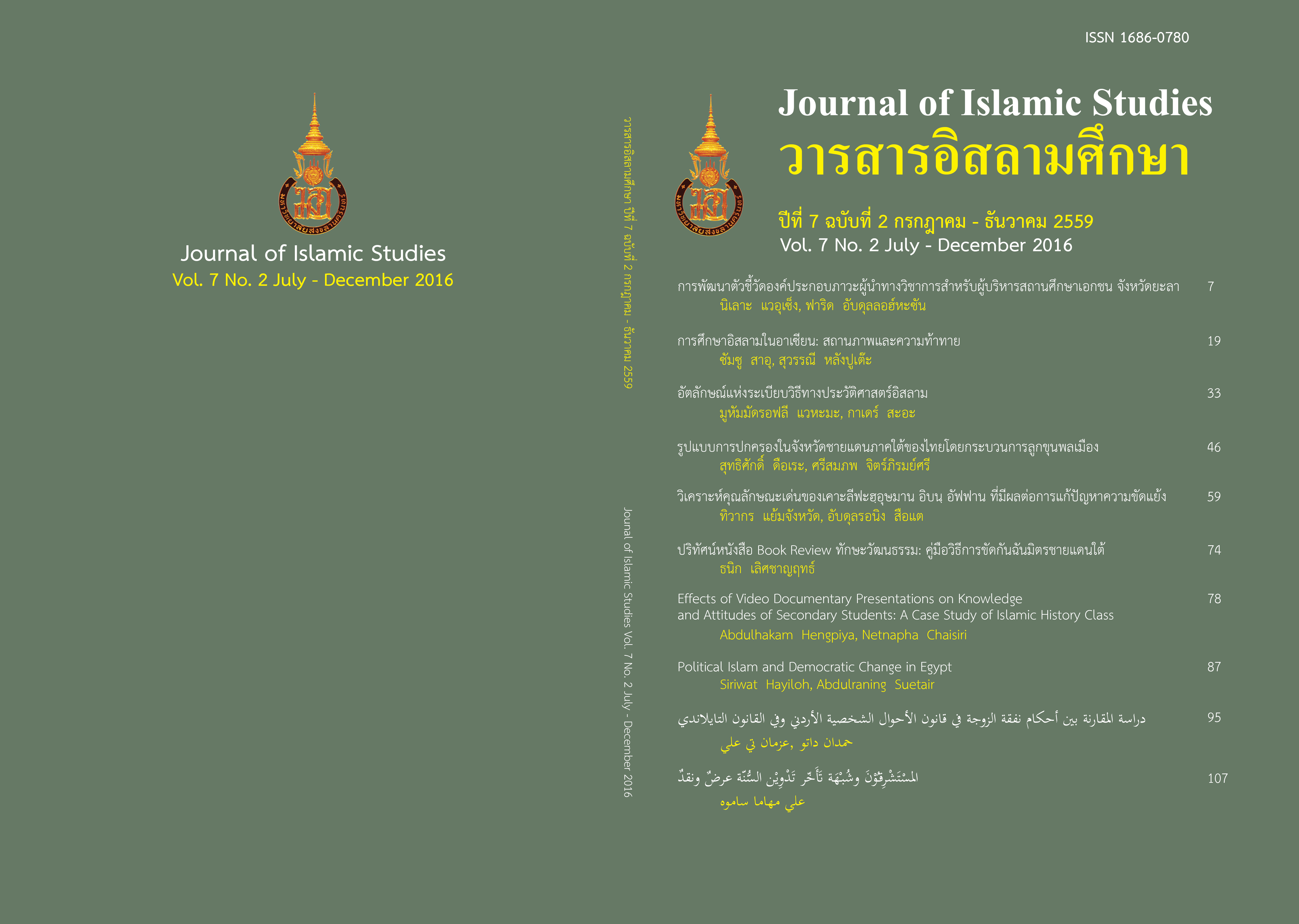Political Islam and Democratic Change in Egypt
Keywords:
Democratization, Identity, Egypt, Political IslamAbstract
The revolutionary events of January and February 2011, in Egypt, opened the door for democratization in Egypt. The new phase were not only in Egypt but also in the whole Arab World whereby it has been characterized by new waves of democratization in Middle Eastern politics. In this regard, the purpose of this article examined the relationship between Islam and democracy and the impact of Islamic political activism on democratization behind the political liberalization process in Egypt. In this analysis, The Arab Spring created an opportunity for the Islamists to participate in politics openly. The Muslim Brotherhood used this opening approach power. But, the monarchies will resist the revolution affecting them by trying to confine the problem to other countries. However, as events in Egypt remained immune to the effects of the Arab spring. The sooner the ruling elites understand this, the more peaceful and controlled the democratic transition will be.
References
Eickelman, Dale, and James Piscatori. (1996). Muslim Politics. Princeton: Princeton University Press.
El-Solh, Raged. (1993). Islamist Attitudes towards Democracy: A Review of the Ideas of Al-Ghazali, Al-Turabi and ‘Amara. British Journal of Middle Eastern Studies, 20:1. pp 57–63.
Esposito, John, and John Voll. (1994). Islam’s Democratic Essence. Middle East Quarterly, vol. I. pp 3–11.
Esposito, John, and John Voll. (1996). Islam and Democracy. New York: Oxford University Press.
Bargisi, Amr ed. (2012). “Khairat al-Shater on ‘The Nahda Project’ (Complete Translation). Current Trends in Islamist Ideology. Retrieved May 10, 2016, from https://www.hudson.org/research/9820-khairat-al-shater-on-the-nahda-project-complete-translation-.
Raymond A. Hinnnebush (1993), “The Politics of Economic Reform in Egypt”, Third World Quarterly, 14(1):159-160.
Downloads
Published
How to Cite
Issue
Section
License
Copyright (c) 2016 Journal of Islamic Studies, Prince of Songkla University, Pattani Campus

This work is licensed under a Creative Commons Attribution 4.0 International License.
All articles Published in The Journal of Islamic Studies are author’s opinions, and not the responsibility of the Faculty of Islamic Sciences nor the editorial board. However any citation should be referred to the journal.
















